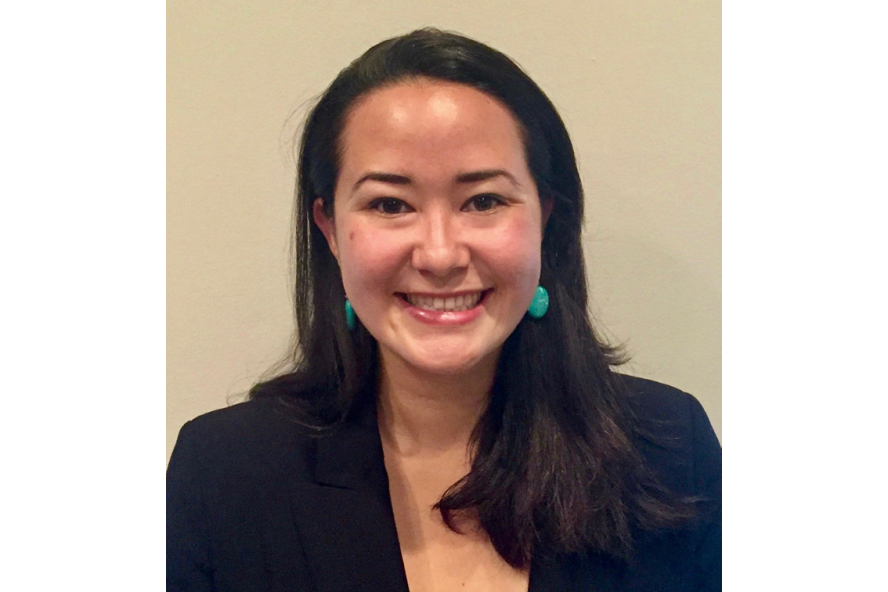-
About
- Departments & Offices
-
Academics
- Physician Assistant
- Special Master’s (MBS)
-
Admissions & Financial Aid
- Tuition & Fees
-
Student Life
-
Research
- Research Labs & Centers
-
Local & Global Engagement
- Global Health Program
ALE Spotlight: Standardizing Family Meeting Practices at Tufts Floating Hospital for Children
MD/MPH student Mika Lindsley combined her interest in healthcare policy & management and clinical practice for an Applied Learning Experience at the Floating Hospital for Children at Tufts Medical Center.

By Mika Matsuuchi Lindsley, M22, MPH’19, Health Services Management & Policy Concentration
The Applied Learning Experience (ALE) is an important opportunity at the end of the Master of Public Health program at Tufts University School of Medicine to apply what we have learned in the classroom in a real-world setting. As an MD and MPH student, I had hoped to combine my interest in healthcare policy and management with my interest in clinical practice when designing my ALE project. Fortunately, a project at the Floating Hospital for Children at Tufts Medical Center turned out to be the perfect opportunity to do just that.
At an ALE fair organized by the Office of Career Services, I found a project focusing on standardizing family meeting practices in the pediatric medical-surgical unit at the Floating Hospital. Family meetings are defined as opportunities outside of medical rounds for healthcare providers to meet with the families of sick children to discuss diagnoses and treatment decisions. These opportunities for communication and coordination between healthcare providers and families are especially important in complex cases. Children with medical complexity can have a range of diagnoses and often have multi-system complications that require consultations with several sub-specialists. They also have longer or more frequent stays in the hospital. In many of these cases, there is an increased risk of miscommunication, conflicting care instructions, and confusion due to the number of care providers involved and the complex nature of the information being shared. Family meetings provide an important opportunity to prevent miscommunication and treatment complications. There is also increasing evidence that patient and family engagement can lead to better health outcomes, improve patient safety and satisfaction, and even help control healthcare costs.
Under the guidance of my preceptor, Dr. Katherine Rakoczy, I developed a project to add some structure to the family meetings taking place in the Floating Hospital’s medical-surgical unit. By standardizing family meeting practices, Dr. Rakoczy and I wanted to ensure that meetings would be arranged before problems arose during the course of treatment and that certain cases were not overlooked.
Through a literature review of best practices and in-depth interviews with multidisciplinary healthcare providers at the hospital, we generated a report with recommendations on how to improve family meeting practices. The recommendations covered everything from what type of patients and situations were best suited for family meetings, to the logistics of how to organize a meeting, and even how to best prepare parents and caregivers for this type of encounter.
With the remaining time available for my ALE project implementation, I was able to take those recommendations and translate them into tools to help guide future family meeting practices. Those tools included a Patient Inclusion Criteria for Family Meeting Consideration, a Clinical Practice Checklist for Conducting a Family Meeting, and a Family Meeting Guide for Parents and Caregivers.
Throughout the implementation of my ALE project, I was grateful to have the opportunity to apply skills learned in the classroom—particularly qualitative interview and analysis techniques—in a professional setting, and I felt assured that pursuing an MPH was a valuable addition to my medical training.
At the end of project implementation, I was pleased with what we were able to accomplish in a relatively short amount of time. The tools we created were an important first step in improving family meeting practices, and our activities generated several potential projects for future students. These include creating a curriculum to train resident physicians in how to organize and conduct family meetings and designing an evaluation of the clinical implications of the family meeting tools.
I had chosen to pursue a combined MD/MPH in order to gain the tools and training necessary to not only work with individual patients but also to address healthcare systems issues through my work. During ALE implementation, I developed problem solving and evaluation skills that will be valuable in future endeavors. I also learned more about the multidisciplinary team of doctors, nurses, social workers, child life specialists, case managers, and pharmacists that cover various dimensions of a child’s and family’s in-hospital and post-hospital experience. In doing so, I gained a deeper understanding of the amount of effort and coordination that goes into each patient’s treatment and was reminded that good health care encompasses far more than just clinical care.